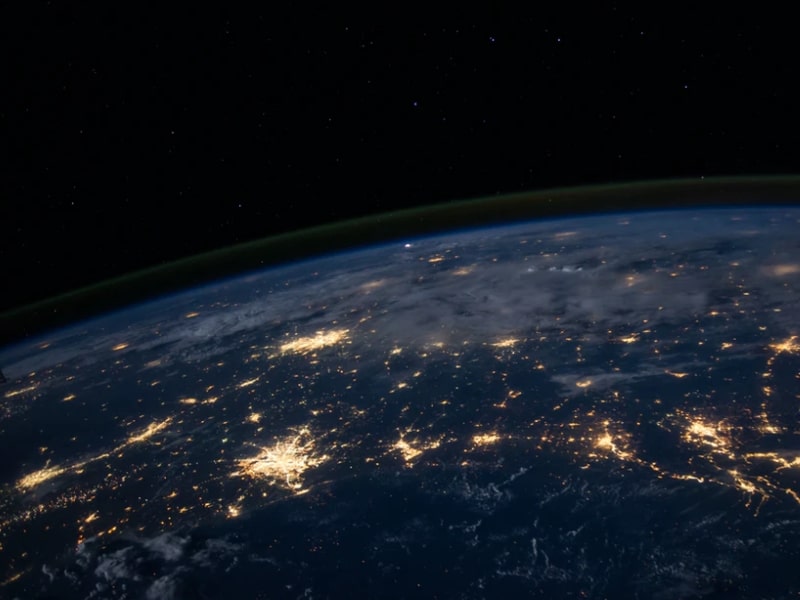When you ask someone what they find most important in life, chances are that happiness is a part of their answer. Happiness is deemed one of the most important things in the world. In fact, this entire website is about happiness. But why is happiness so important exactly?
This question is a bit harder to answer, mostly because happiness is something subjective. However, there are plenty of evidence-based reasons that explain the importance of happiness. So even when you feel that happiness is the most important thing in your life, here are some actual reasons that back this up.
This article will answer many questions, like why happiness is more important than money and why more happiness will result in a more sustainable planet. At the end of this article, you’ll be able to explain the importance of happiness to somebody else!
The importance of happiness
When discussing the importance of happiness, it’s critical to understand the difference between the personal importance and the greater importance of happiness.
For example, I find my own happiness important, because… well. Because I am a better person when I’m happy. I find my life more enjoyable when I’m in a good mood, so my happiness is important to me!

But there are also reasons why your happiness is important for the greater good. Whether it’s the society, your surroundings or the future of this planet: your happiness makes a difference.
Personal importance of happiness
It’s easy to understand why happiness is so important on a personal level. We all want to be happy, because happiness is a part of everyone’s actions. Whether it’s the goals you’re working towards, the people you socialize with, or the hobbies you engage in: it’s highly likely that you’re looking for happiness.
There is plenty of evidence-based research to back this up:
Greater life satisfaction is linked to a healthier and longer life
There are already plenty of studies and articles out there that support the correlation between happiness and living longer and more healtily. Happy people tend to live longer and healthier lives. If you don’t believe this, here’s some compelling studies:
- Happiness improves your cardiac health.
- Happy people are more likely to eat healthily and be more physically active.
- Unhappy people are more likely to catch a cold (sounds annoying, right?)
- Being happy helps reduce your stress levels.
- More positive and happy people are less likely to die (although the true nature of this observation is not yet fully understood).
Want more proof? If you Google the words “happiness vs health study”, Google will give you over 300 million results.
I’d say this goes a long way to explain the importance of happiness. But there’s more.
Happy people are more productive and likely to succeed
Philosopher and Nobel Prize winner Albert Schweitzer once said:
“Success is not the key to happiness; happiness is the key to success.”
Albert Schweitzer
Is there any truth to this quote?
Yes, there is. For example, this study found that employee happiness is correlated to employee productivity and performance.
In fact, this interesting page breaks down whether or not happy people are really “worth more” than unhappy people. The page continues with some interesting observations about whether or not policymakers should focus more on the happiness of people.
This brings me to the more interesting question: what makes happiness so important for the greater good?
Sure, it’s clear that personal happiness is something we should all personally pursue. But what about the impact of personal happiness on society as a whole?
What makes happiness so important for the greater good
Happiness may be much more important for the greater good than you think.
This is something that I’ve been thinking of a lot lately. The impact of personal happiness on our society as a whole is something that – I feel – should be a much bigger topic these days.
In order to properly explain where I’m coming from, I need to zoom out a little.
Our current situation as a species
If I told you that the human race is currently on a pathway to self-destruction, would you believe me?
I’m not saying that I’m convinced of some kind of doomsday scenario, but there are plenty of people who believe so. And when you look at the numbers, it’s a compelling case:
- Animal extinction rate is at an all-time high.
- Global warming is becoming more and more of a crisis. (Some people even believe that we’re past the point of no return).
- Income inequality and the division between the rich and the poor seems to be only growing.
- The amount of children that are growing up in conflict areas is growing.
Do I need to go on?

The current driver of our decision-making process
Whether or not we as the human species are destroying this planet is not the topic of this article. However, it’s important to realize that there are simply a lot of worrisome things happening in the world right now.
And what’s the root-cause of these things?
If you ask me, it’s capitalism.
Google’s current definition of capitalism is:
“an economic and political system in which a country’s trade and industry are controlled by private owners for profit.”
The decisions we make are generally controlled by our desire to profit. Whether it’s the policies created by our governments, or the execution of projects by the companies we work for: our decision-making process is controlled by economic profit. Whatever option generates the most monetary profit, that’s the option that’s most likely going to be chosen.
Capitalism demands efficiency, in order to increase profits and stay ahead of the pack. This demand for efficiency often comes at the cost of sustainability and global happiness levels.
Nonetheless, this type of decision-making has led to great things:
- It’s made us more connected. We can book a plane ticket and land on the other side of the world 30 hours later.
- About half of the global population carries a device that acts as a calculator, GPS, multimedia player, browser, alarm, browser and cellphone.
- Humans are so far developed, that we now have a human-made object over 22.8 billion kilometers in space from where we are now.
These are all fantastic achievements, that we may not have reached by now if we hadn’t used economic profit as the main driver for our decisions.
But then again, if you look at our current situation (remember the previous bullet list of negatives?), we may want to reconsider our approach for the future.
Examples of what makes happiness important for the greater good
Here’s one of my favorite quotes, ironically from someone who’s famous for helping business leaders generate more profits.
What got you here won’t get you there.
Capitalism may have gotten us to be the most advanced species to have ever lived (who knows?)
But will this same approach lead to a long, happy and sustainable life?
One of the best documentaries I’ve watched last year is “A Life On Our Planet” by David Attenborough. This documentary explores the current problems we have on our planet and provides interesting ways that can help us deal with these problems.

Interestingly enough, it’s clear that capitalism is not the answer.
In fact, I would go as far as to say that happiness is the answer. Even if you don’t agree, it’s still interesting to explore the concept of happiness as a driver for decision-making. What if companies and governments used happiness as the driver for their decisions, instead of profit? Would the world be a better place?
I think the answer is clear:
1. Happiness is correlated to sustainable actions
A 2012 article by Victor Corral-Verdugo, fittingly entitled The Positive Psychology of Sustainability, argues that the main values of sustainable behavior and positive psychology are quite similar. For example, both stress the importance of altruism and humanity, equity and fairness, responsibility, future orientation, and intrinsic motivation to name a few.
Based on previous research, Corral-Verdugo outlines some positive variables that cause people to engage in sustainable behavior.
One of these factors is happiness. It states that happiness is related to decreased consumption of resources and pro-ecological behaviors.
This is an interesting observation because it implies that happiness may help fix the climate issues that we’re facing. If happier people are more likely to act in a sustainable way, then it’s easy to see how more happiness results in more sustainable choices by governments and big corporations.
2. Focusing on happiness comes with many indirect benefits
There are some admirable examples of companies that clearly demonstrate how to focus on employer happiness instead of corporate profit.
One that comes to mind is Zapier, a software company that made headlines by offering every employee a $10.000 relocation fund if they decided to move away from San Fransisco. Logically, this move didn’t improve their profit margins, and it was done as an experiment to help their employees relocate to places where the cost of living was lower.
Another interesting example is the CEO of Twitter, Jack Dorsey, who donated a huge chunk of his wealth (roughly 28%) to fund the development of a COVID-19 vaccine. You could argue that this $1 billion donation was a brilliant marketing move. But then again, it is one of the biggest donations when looking at the relative size of the donation to the net worth of the donator.
I’m personally much less impressed by Jeff Bezos’ cumulative $2.1 billion donations since they’re only 1.9% of his net worth.
These examples all share a commonality: the decisions were not based on maximum profit, but rather the happiness of the people.
Are these people worse-off as a result of their decisions?
Jack Dorsey is still one of the most wealthy people alive, but his donation helped fund the vaccine that will hopefully propel us out of this pandemic. Zapier could have made more profit if they hadn’t offered their employees the extravagant relocation bonus, but they didn’t. They are still a profitable company, but their decision also increased the happiness of their employees and increased their ability to hire smart and talented people.
In a world where everything is centered around profitability, it’s interesting to see how focusing on happiness can lead to indirect consequences that will end up benefitting profitability as well.
3. Happiness is correlated to fewer conflicts
Before I go on, I want to acknowledge that this topic is highly controversial. Therefore, I’ve tried to use only factual sources here.
Based on yearly polls of happiness, Africa is often recognized as the unhappiest continent. Africa is also the continent with the most conflicts.
It’s easy to understand how conflict can negatively impact the happiness of the people involved.
Does that mean that Africa would be free of conflict if everyone magically woke up happy one day? No, because the continent is plagued by other – more severe – issues, like inequality, corruption, poverty, a horrible history of colonization, poor infrastructure and more.
But that’s not to say that more happiness would not lead to improvements. In fact, there is a strong case to be made that if governments would focus more on the happiness of others, the issues that are plaguing the content would be somewhat reduced. This well-written page explains it much better than I could.
An interesting, yet somewhat anecdotal, example that supports this idea is the country Costa Rica. This relatively small country manages to score high on the World Happiness Report every year, despite having one of the lowest GDPs. Even though there are multiple reasons for this relatively high score, it’s interesting to know that Costa Rica does not have a standing army.
Where the United States spend an incredible $732 billion per year on their military, Costa Rica spends next to nothing in comparison.
As a result, they don’t directly participate in conflicts around the world and have more money to spend on improving the lives of their people.
Can focusing on happiness close the gap between the poor and the rich?
One of the biggest problems in the world right now is income inequality. The rich seem to only get richer, while poverty continues to be everywhere.
Will focusing on happiness close this gap?
I’d say it would. Imagine a company that focuses less on profits and more on employee happiness. At first, profit margins would decrease. Traditional investing methods would result in a lower valuation of said company. This lower valuation would lead directly to a lower level of wealth amongst shareholders.
In other words, the rich get less rich.
When this money is reserved for employee happiness instead, the life of employees would naturally be impacted positively. I mean, it’s not hard to imagine that more lenient deadlines would result in less stress at work, and therefore a happier life.
Unfortunately, there aren’t any studies that support this theory (yet!)
This is something that I’ll be publishing more about in the next couple of weeks.
Closing words
Focusing on personal happiness is clearly important. But how does this happiness benefit the greater good? I hope this article has inspired you to think differently about the importance of your happiness.
By focusing more on the happiness of others, I believe we’re able to create a happier and more sustainable place for our children to grow up in.
What do you think? Do you disagree with anything in this article? Do you want to share your own story on what makes happiness important for you? I’d love to hear about it in the comments below!

